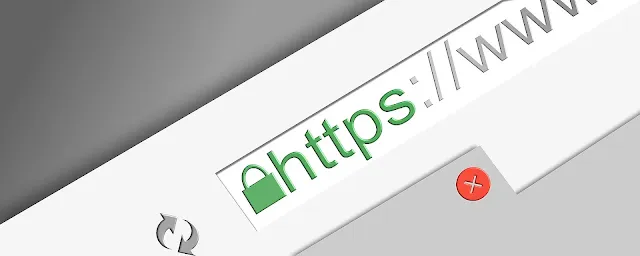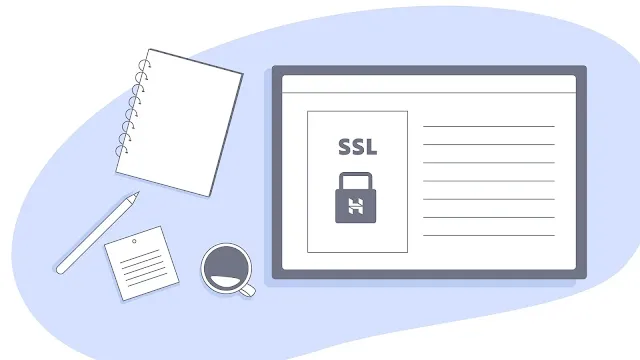 |
| Protect Website From Hackers |
Website Security has become one of the most important areas of business, as more and more people are shopping online. With so much of your company's online presence now residing on your website, it’s vital to protect it from hackers and other harmful elements that might infect your site with malware or otherwise cause potential security issues for your customers and visitors.
There are many ways to protect your website from hackers, and it starts with two things: educating yourself about what could happen and knowing how to prevent those things from happening to you. In the following list, we’ll explain exactly what the most common website security issues are and how you can take action to keep your website secure at all times.
You’ll also find several tips on creating a secure password and avoiding common mistakes that put your website at risk of being hacked. To help you keep your site secure, we’ve compiled a list of 10 top tips that will help you build security into every aspect of your website design, functionality, hosting, and more!
Secure your Website with HTTPS
 |
| Use HTTPS |
Most modern browsers now warn users when they visit a site that isn’t HTTPS-encrypted, but given enough time and effort, hackers can still get access to sensitive data if it isn’t encrypted. By now, you’ve probably heard that Google is going to start giving preference in its search results rankings to websites that use HTTPS. While many people are familiar with HTTPS and know that it stands for Hypertext Transfer Protocol Secure, not everyone knows exactly how it works or why using HTTPS is important.
You should secure your site with HTTPS as soon as possible. To do so, you’ll need an SSL certificate—you can get one free of charge (though there are also paid options) through providers like Let’s Encrypt or Comodo Secure Certificate Authority. This will use SSL/TLS protocols to encrypt connections between web browsers and servers, effectively securing every piece of data being given back and forth unsafe code.
In simple terms, HTTPS refers to a connection between a website and a web browser—in other words, it's what enables a user's computer to talk securely with a website. Because HTTPS is secure (meaning users' data can't be viewed by others) and encrypted (meaning nobody can tamper with information transmitted over HTTP), Google will likely favor websites that use HTTPS in its search rankings.
Use Strong Passwords
Your website's login credentials are critical. Make sure your website's password is strong, as weak passwords are easy to guess. A strong password should be at least 12 characters long and comprise a combination of uppercase, lowercase, numerical, and symbolic characters. It's also crucial to use different passwords for each account you set up. To avoid being hacked, the most important thing is to keep your login information confidential.
Encrypt data with SSL certificates
 |
| Encrypt with SSL Certificates |
SSL certificates are undoubtedly something you've heard of before, but do you know what they are and why they're so important? For starters, they encrypt data in transit, ensuring that only you and the person to whom you're transmitting information can decipher it. This makes it nearly hard for a third party (i.e., a hacker) to listen in on or tamper with any communications between your site's visitors and your server. If an attacker were to gain access to that communication, all they would see is a pile of encrypted text, effectively eliminating any prospect of them launching an attack.
Use encrypting data software to ensure that your sensitive files are safely saved offline. Here are a few suggestions for you to think about. To protect your website, use a strong password. Credentials have been used on websites and applications since the dawn of time, so it should come as no surprise that they will be used on them as well.
And even though most people have realized by now that standard passwords aren't very secure, many sites still don't offer more secure alternatives such as 2-factor authentication for users - which requires something like a physical token you carry around or SMS messages sent directly to your phone in order to sign in.
Keep Website Up-to-Date
 |
| Keep Website Up-to-Updates |
To protect against hackers, it's vital to maintain your website software up to date. There's specific software to think about, like WordPress and Joomla, but there's also analytics, email marketing, website security, and e-commerce platforms to think about.
If you don't maintain these services up to date, you'll be susceptible to security risks. The best part is that most of this updating is straightforward for you or your IT team to perform. Make it a habit to install necessary updates as soon as they become available.
Conduct Regular Backups
 |
| Conduct Regular Backups |
In addition to regularly backing up files on your computer, you should make sure that your website is backed up regularly as well. Many hosting services offer automatic backups, but if you host your own site then it’s a good idea to back it up on a frequent basis using a service like CrashPlan or Backblaze.
Having regular backups means that if something bad happens — like an attacker manages to break into and completely destroy your site — you’ll be able to restore quickly without losing many readers. If for whatever reason you can’t restore from a backup right away then use an automatic WordPress migration plugin like UpdraftPlus, which will ensure that traffic keeps flowing.
Update CMS Plugins and Themes
 |
| Update CMS Plugins and Themes |
We've all heard hacker horror stories. It can also happen to you if you don't keep an eye on improvements. That's why it's a good idea to make sure any software on your website is up to date and free of risks on a regular basis. Simply navigate to Dashboard > Plugins > Add New to make sure WordPress is up to current on your site. Then select Update available next to plugins and click Update (or update all).
Similarly, by heading to Appearance > Themes and then checking Automatic theme updates in Dashboard > Settings > Updates, you may perform similar things with themes (under Upgrades).
Scan Your Website
 |
| Scan Your Website |
When it comes to securing their website, many people make a critical errors. They're on the lookout for black hat hackers, but they're overlooking the fact that they should also be on the lookout for white hat hackers. Vulnerability scans are one method. This allows you to get a quick overview of all known vulnerabilities on a website without having to attack them, allowing you to fix them right away.
These scans are available from a variety of companies, including Sucuri SiteCheck, Qualys, and Netsparker. However, vulnerability scanning is simply one of ten ways to safeguard your website against hacker attacks. You can learn more about how to protect your website from hacker attacks in How To Protect Your Website From Hacker Attacks.
Monitor & Block Brute Force Attacks
 |
| Monitor & Block Brute Force Attacks |
These attacks attempt to guess your login or password by going through a list of probable passwords in a methodical manner. If you have a bob account with a password or password, for example, these types of assaults can try other combinations like bob1, bob2, bob1234, and so on. To avoid getting attacked by brute force assaults, keep an eye on any strange activity on your site and use a firewall or web application firewall (WAF) to block IP addresses that appear suspect.
If you suspect someone is launching a brute force attack on one of your accounts, reset your password right once because they may already have access.
Access To WordPress Admin Panel
 |
| Access To WordPress Admin Panel |
Users of front-end websites aren't the only ones that require security. Your WordPress Admin Panel can be hacked as well, but it doesn't have to be if you follow these ten simple steps. If a hacker obtains one of your admin passwords and installs a back door Trojan into your system, they will have complete access to your system and will be able to do pretty much anything they want.
To keep attackers out of your WP Admin panel, make sure you're using all of WordPress's built-in security measures, such as changing default login details and requiring strong passwords.
Hosting on HTTPS Servers
 |
| Hosting on HTTPS Servers |
There are several businesses that can help you host your website on an HTTPS-only server. This is one of the initial lines of defense against potential intruders. While it does not prevent them, it does raise a lot of red flags and notifies you that someone with bad intent is attempting to break into your system.
Google penalizes websites that employ the http:// protocol by decreasing their search engine rankings. As a backup layer of security against future cyber-attacks, use https://.

Post a Comment